Why I Wrote The DarkTrench Saga
Note: The DarkTrench Saga‘s final volume, Freeheads, was published Oct. 1 by Marcher Lord Press, completing the three-book series by author Kerry Nietz.
Now that I’m done with it, I’ll talk about it.
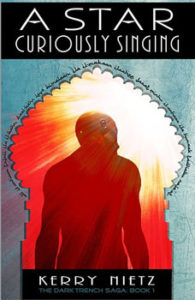 The genesis of A Star Curiously Singing and its sequels is multifaceted. The one side, the non-controversial portion, stems from my technical background. Most people get that. They see how a former programmer could create a hero that is a future programmer. This implanted, hairless, tech-slave named Sandfly. Not a big stretch for a former Microsoftie, right? In fact, one might guess that there were times in my life that I felt like an implanted tech slave myself. (And you’d be correct! Read FoxTales!)
The genesis of A Star Curiously Singing and its sequels is multifaceted. The one side, the non-controversial portion, stems from my technical background. Most people get that. They see how a former programmer could create a hero that is a future programmer. This implanted, hairless, tech-slave named Sandfly. Not a big stretch for a former Microsoftie, right? In fact, one might guess that there were times in my life that I felt like an implanted tech slave myself. (And you’d be correct! Read FoxTales!)
It is the other side that people wonder about, though. The controversial side. The religious side. So let’s talk about that.
In some respects, ASCS would’ve never been written without 9/11. The actions of those terrorists absolutely set the stage, but only in a generalized way. That event is the prism through which our current world is seen. Fact: There are followers of Islam who want very strongly to kill or enslave those not of their faith. (Except to a few members of The View panel, that fact is indisputable.)
But 9/11 wasn’t the reason for my books. They aren’t my way of striking back for those atrocities. What the context of 9/11 did was make me curious about what other faiths believe and teach. Made me search for correlations between beliefs and actions. And made me explore the uniqueness of Christianity.
In some ways, you can blame the DarkTrench series on my father. He’s an avid reader, and his last read is always available to me. In fact, if the book is something he feels strongly about, it is not just available, but often thrust upon.
 One such acquisition was a book by Mark Steyn called America Alone. The conclusions of that book are hard to dispute. Based solely on current birthrates, it projects the end of much of the western civilization, aside from America.
One such acquisition was a book by Mark Steyn called America Alone. The conclusions of that book are hard to dispute. Based solely on current birthrates, it projects the end of much of the western civilization, aside from America.
Why? Because most westernized nations are without a sustainable birth rate. In essence, the penchant for small families and abortion has subjugated those countries’ future.
To whom? To whomever is having children! And who would that be? (Hint: Osama bin Laden has 20 children. He was one of 53.)
Along with Steyn’s book, three others made their way into my hands. Two were similar in flavor, in that both were written by women who escaped Islamic cultures for America. (Because They Hate by Brigitte Gabriel, and Now They Call me Infidel by Nonie Darwish.) They put faces on the subject matter. Here are two people who lived in these cultures with higher birthrates. What were their lives like? What are their fears? What have they learned?
The fourth book brought the issue home. Stealth Jihad by Robert Spencer is all about the covert ways that sharia (Islamic) law is infiltrating American culture. It was a wake-up call. An eye-opener. Sharia wasn’t just an “over there” issue, it was a “right here” issue.
Taken together those four books allow for ample speculation as to a future world.
Fact: There are people, whether we like it or not, who want to see the entire world under sharia law. (Sorry again, View ladies. Just the facts here.)
So the principle speculative goal of A Star Curiously Singing and its sequels was to give those sharia-seekers what they are after. To create a world where sharia is the law of the land. What would that look like? What are the dangers? How would people behave and adapt? What do I fear for my children?
But how does a future tech-slave fit into that world of sharia law? Isn’t sharia by definition low tech living? Dressing and acting like the founders of Islam?
Well, yes and no.
I saw a documentary once on the Sultan of Brunei. In one segment there was a glimpse of this room where people were busy recording the Sultan’s favorite television shows. All day, every day. That’s right–at least three people spent their lives monitoring banks of screens and constantly swapping video tape. Making sure the Sultan got to view what he wanted, when he wanted.
To me, that made the idea of a tech slave entirely plausible amid a world of sharia. Of course there would still be people (undoubtedly rich people) with technology. And if it were five hundred years from now, it would probably be incredibly complex technology. Of course they would need someone to maintain it all. A person chosen (constructed?) for that purpose.
What if they had robots…humanoid robots? And what if one of those broke down as part of a top secret space mission?
Sounds like the beginnings of a speculative fiction novel, doesn’t it?
I should mention here that I never intended for anyone else to read my work. I knew it was going to be controversial and very non-PC. But I was writing it for me. It was an experiment on a number of levels. I was challenging myself. Seeing if I could write this very unique story, in an equally unique way.
I can still do that, right? Write whatever I want? In the comfort of my own home?
It wasn’t until after the first book was finished that I realized I had to share it. I didn’t want to, but I had this feeling, this writer’s nudge. The notion that what I had just written was unique enough that someone else ought to see it. I won’t say it was God’s prompting necessarily, but it was certainly a strong enough urge to overcome my reservations.
Plus, there had been many amazing coincidences as I wrote (and later edited) the book. Things that I wrote in ignorance, that later turned out to be true, or close enough to the truth to make me wonder: maybe this world isn’t just for me. Maybe I need to share it.
 So I put out a fleece. I sent it to an editor I knew of. Paid his normal rate for examining my book and giving me his input. It was the least I could do, right? I was open to changing a lot of things about the book if he felt it was publishable. Not the message, necessarily. But otherwise a lot was open to negotiation.
So I put out a fleece. I sent it to an editor I knew of. Paid his normal rate for examining my book and giving me his input. It was the least I could do, right? I was open to changing a lot of things about the book if he felt it was publishable. Not the message, necessarily. But otherwise a lot was open to negotiation.
Months went by. Then this editor, Jeff Gerke, responded. He said the book needed work, but in none of the areas I feared. Mostly expanding. Mostly more good stuff. He also said if his suggested work was completed, he would publish A Star Curiously Singing himself. Possibly have me write a trilogy in Sandfly’s world.
Now that was a surprise. I expected to be chastised, actually. Or warned away. Not complimented and encouraged. Offered a contract. And, though daunting, making his improvements made the story better. Some of its most touching and insightful moments came from those additions.
The next test, of course, was how the book would be perceived publicly. Following release day, I waited, sometimes fearful, to see what would happen next. How bad were the reviews going to be? How soon would the attacks come?
But again, I was surprised. ASCS got some of the nicest reviews. Many of them astounded me with their prescience. Their ability to see things and meanings that even eluded me. Truth reveled outside my intent.
Honestly, I’ve been so blessed by the things people have said, and the friends I’ve made. That alone has made the journey worthwhile. Salved my early trepidations.
It hasn’t all been good, though. The DarkTrench trilogy has had some interesting criticisms, but not from the places I expected. The strongest reproaches have come from the Christian community. (With atheists being a strong second.)
Next I’d like to highlight (and respond) to some of those criticisms. This first is from a friend, and is part of an otherwise positive review. Still, it raises an important question…
The story could have been told without the Muslim content. Kerry could have just made up some fictional pagan society and the story wouldn’t have suffered. Why take a chance on alienating so many potential readers?
Fair point. I could have made up another society, or even gone with a completely godless society.
The latter alternative has been done to death, though. George Orwell (1984) did it, Aldous Huxley (Brave New World) did it, William F. Nolan (Logan’s Run) did it, and in some respects, so did Suzanne Collins in Hunger Games. My goal as a writer is to always be as unique as possible.
 As to the pagan society alternative, the risk there is a loss of relevance. One objective of my books is to illustrate the differences between Christianity and other religions. In the second book, The Superlative Stream, there are actually three alternative belief systems represented.
As to the pagan society alternative, the risk there is a loss of relevance. One objective of my books is to illustrate the differences between Christianity and other religions. In the second book, The Superlative Stream, there are actually three alternative belief systems represented.
One atheist reader picked up on my aim there, because he said this in a review: “This saga is ultimately about the superiority of God over Allah, Christianity over Islam. Absurd as it may seem these gods are viewed as separate entities in this world.”
Um, yes, that’s true. But that’s absolutely what Christians believe. We believe Jesus is God. Every other belief system thinks he was a good person, a prophet, a teacher, or worse.
So, yes, guilty as charged. No absurdity about it.
See, relevance is a good thing. When we attempt to teach, we need to be both relevant and specific. All other paths lead to confusion.
Speaking of which…
I do not appreciate this same message when any religion is portrayed as better than any other and think the implications behind this message are extremely dangerous. To me, any religious faith should promote tolerance – of all people and of all religions.
The saddest thing for me about this one is that it came from a judge in a Christian fiction contest. Someone who claims to be a follower of Jesus Christ—the Word made flesh, who died and rose again, and whose teachings and influence still shape our world—also feels that no religion is better than any other.
Sad.
Yet, it illustrates the very thing I wrote the books to combat. Spiritual relativism. The idea that every belief system is the same. The idea that all roads lead to the same place. Only someone who has never studied other faiths would believe that. Yet so many preach it with vigor.
Christianity is unique for very specific reasons. Christians should know that, and share it with others.
Speaking of which…
It dragged up every negative stereotype…within the first 50 pages of the book…and it only got worse from there. That’s not what I’m looking for when I buy Christian fiction.
Perhaps this person wasn’t aware that this was a speculative title. Speculative fiction by definition deals in generalities. I’m sure George Orwell wasn’t saying that all communist leaders were pigs when he wrote Animal Farm. He was dealing in generalities to illustrate a greater point.
To reiterate one of my earlier facts: There are large groups of people who want sharia everywhere.
My goal was to project that future. You can disagree with my prediction. Perhaps a world of sharia would be completely different from what we see in countries where it is practiced today.
But don’t forget, I’m not writing about your next-door neighbor. I’m writing about someone from the future, in a culture of the future. I can paint that picture any way I want.
I hope I’ve done so in an entertaining, unique, and thought-provoking way. Because I’m convinced it was a story meant to be told.
Done, done, and done.
Kerry Nietz is a refugee of the software industry. He spent more than a decade of his life flipping bits—first as one of the principal developers of the database product FoxPro for the now mythical Fox Software, and then as one of Bill Gates’s minions at Microsoft. He is a husband, a father, a technophile, and a movie buff. Kerry is the author of The DarkTrench Saga trilogy and a memoir entitled FoxTales: Behind the Scenes at Fox Software.

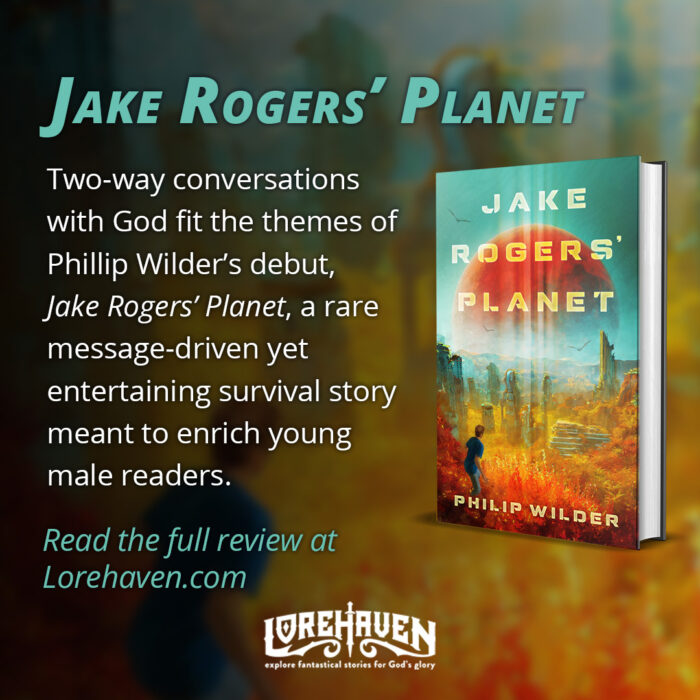
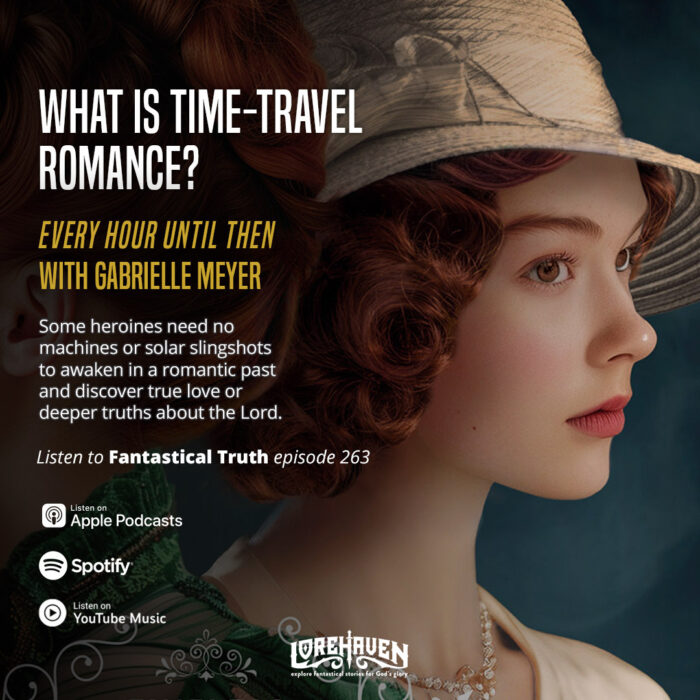


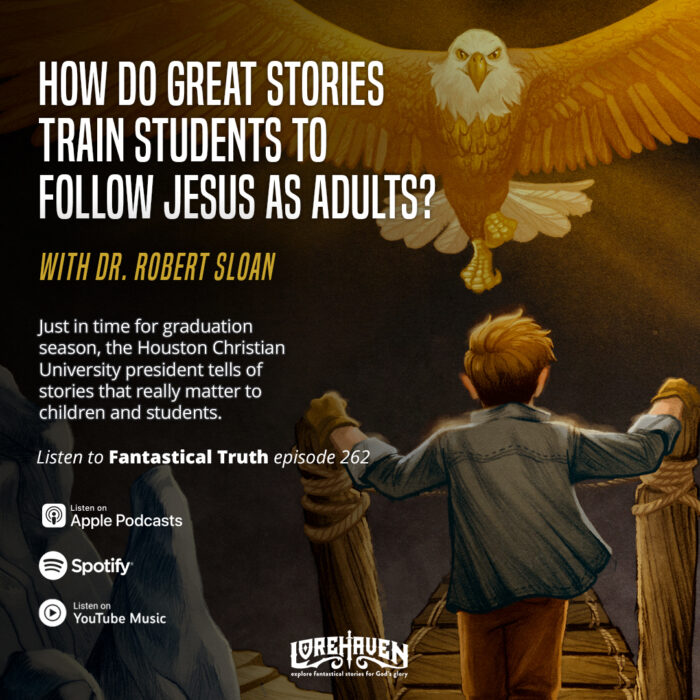












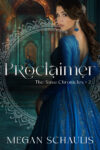
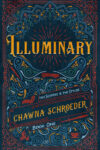

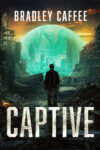



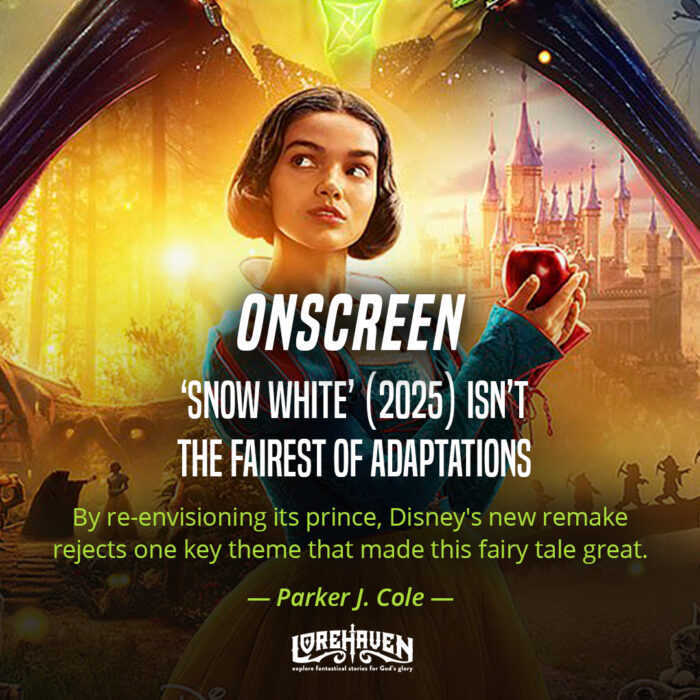
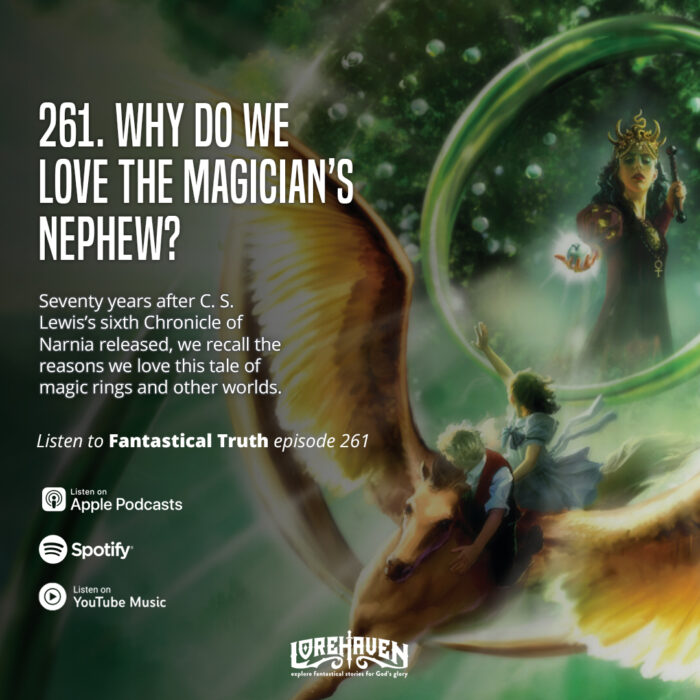
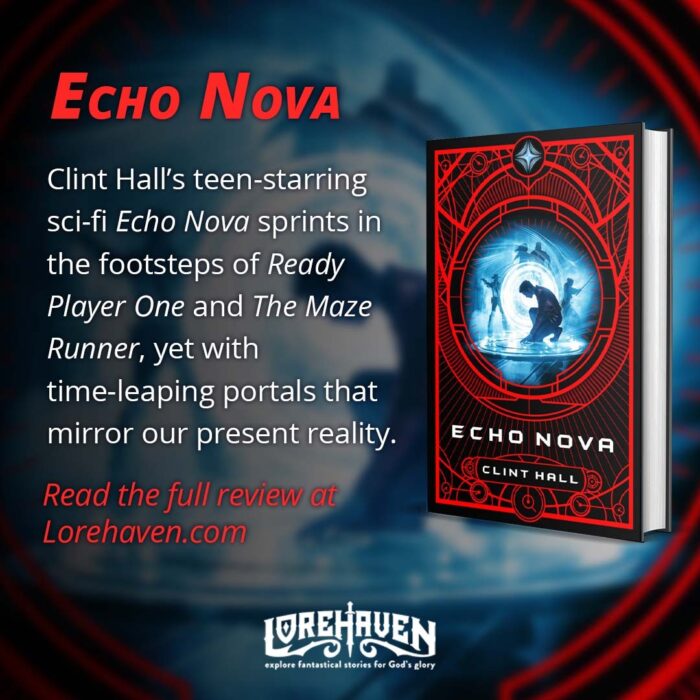
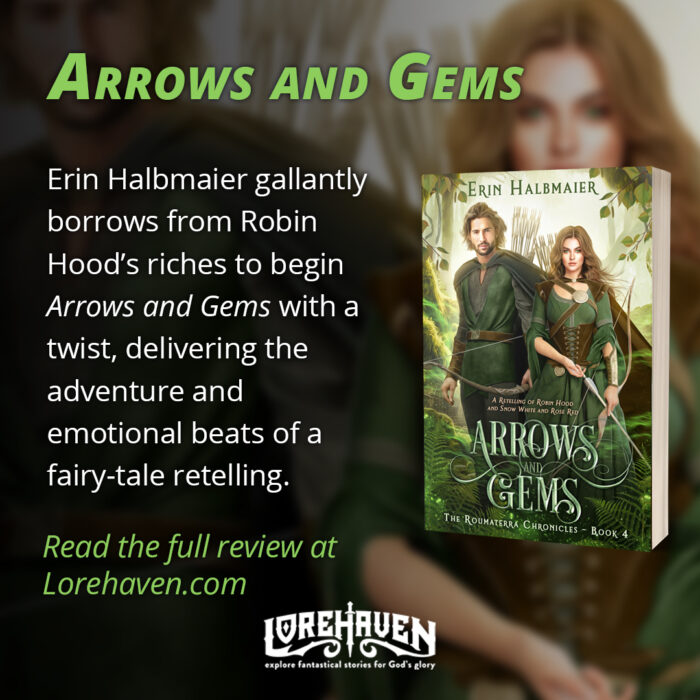
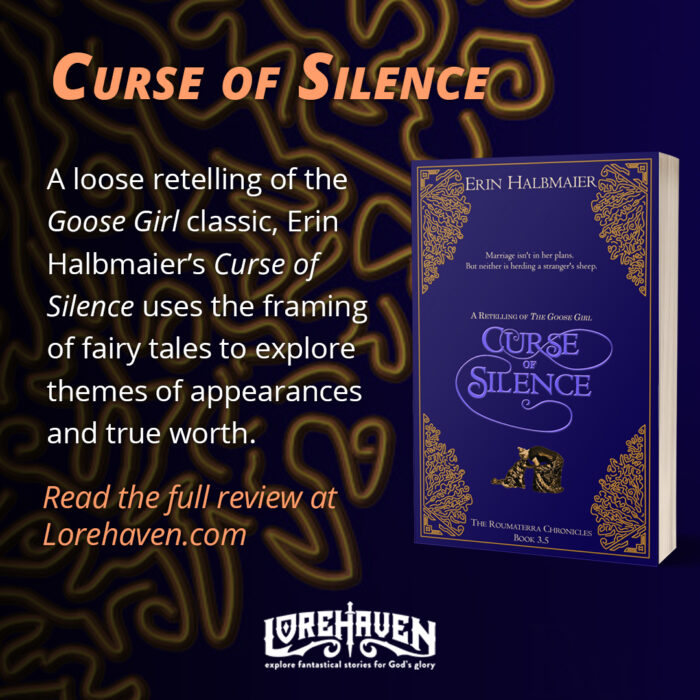
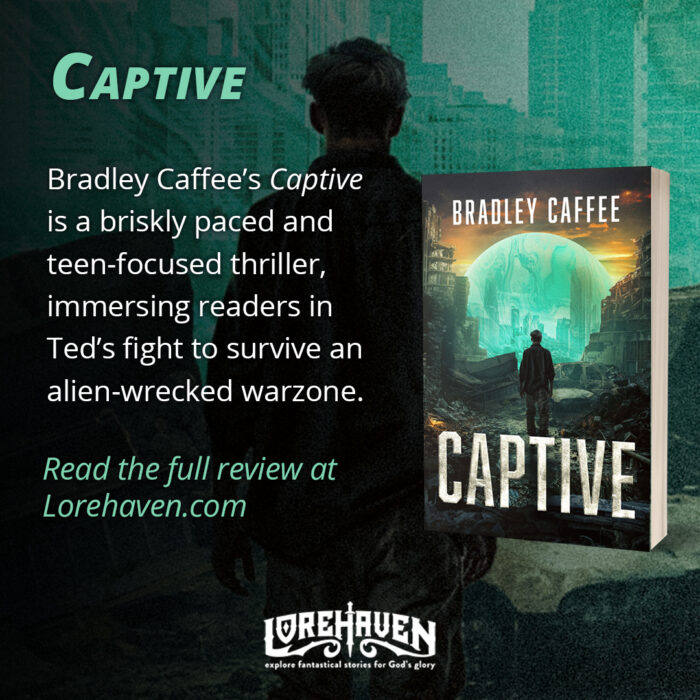






Sounds like something to add to my list of prospective reading material.
That’s exactly what I’ve been thinking, Galadriel; in fact, I’m a bit embarrassed to have caught up with the series so late.
Which leads me to ask an additional question: how have you, Kerry, marketed The DarkTrench Saga, to lead to all the reactions — including negative ones — that he described? One barrier to that, it would seem, is political correctness (or else sensitivity and Tolerance and things, take your pick).
By the way, speaking of marketing, I hope the site’s new webscape adds helpful features.
Kerry’s series has been in my “must read yesterday” stack far too long. He’s certainly not the first spec-fic writer to explore an Islam-ascendant future, but I think he’s doing some unique things with his integration of technology–taking that Sultan’s information center and projecting it ahead. He also shows how God might work within such a society in surprising ways. For Christian fiction, the idea that Christians might find themselves a subservient minority in an Islamic world, exclusive of an apocalyptic scenario, is pretty radical.
The danger, of course, is projecting a caricature of Islamic culture into the future and painting characters from that society with a broad, negative brush. I don’t think Kerry has veered that direction, but people have a talent for finding prejudice wherever they want to see it. Smile, nod, press on.
Found an interesting site focused on Islam in science fiction and Muslim writers of sci-fi, with lots of interviews. http://islamscifi.com/
I reviewed ASCS and interviewed Kerry some time ago. It is definitely one of the most unique and well-written books I’ve picked up. The second one has a totally different feel, but they both put me in mind of classic sci-fi authors–Asimov, H.G. Wells.
Gotta get my cold little Canadian paws on #3 right soon, here.
By the way, Mark Steyn’s thoughts in America Alone were summarized here in Canada by Maclean’s magazine. The Canadian Islamic Congress tried filing a “hate” complaint with the Human Rights Commission (which is a kangaroo court that acts as a parallel legal system based on “international” soft law). This notion of piggybacking Islamic sharia onto international human rights proceedings is not new or unique to Canada:
http://www.macleans.ca/world/global/article.jsp?content=20080723_27859_27859
There are processes by which proponents of shari’a do seek to operate, whether or not they’re representative of their own majority within the religion. But then, shari’a is not democratic. At any rate, Kerry’s storyworld is not about what’s impossible, but what we find uncomfortable to imagine.
Kerry’s books do a fine job of showing that not everyone in such a world is made of two-dimensional evil. Spirituality in storytelling happens, and The Kite Runner and A Thousand Splendid Suns are a primary commercial proof that Islam and its political movements are not off the discussion list. For that matter, I can go on Amazon and buy an analysis of the influence of Buddhism on sci-fi and fantasy. It’s not a competition to “colonize” fiction, but it’s also not something to shy away from.
I don’t despise Asimov for his worldview, or Khaled Hosseini for his, but I suppose it’s fashionable to despise Christianity–even (or especially) if one is a Christian. I do wish more people would fully appreciate the open forum of free speech and belief. After all, that’s what allows people to complain about guys like Kerry Nietz. 😉
Good question, Stephen. My marketing plan for DarkTrench is essentially this: Watch what Jill Williamson does to promote her books, and do likewise. Ask her advice, and follow it. 🙂 At this point she’s probably the most knowledgable person we (Marcher Lord) have for getting the word out, so she’s been a good one to try to emulate.
To be honest, I’ve tried alot of things. I’ve entered lots of contests, and had some success there in at least getting noticed. Surprisingly, the success has come mostly from secular venues over strictly-Christian ones. (You can go here to see all the entire MLP awards list: http://www.marcherlordpress.com/awards.html)
I’ve also sent review copies out to alot of people and encouraged people to leave reviews. Done book swaps with other authors, giveaways on blogs, lots of interviews. (I have an exhaustive list of those on my site.)
But really, I’ve had no guarantees on how things were going to go. I’ve been surprised by the positive reader reception. Grateful. Really, you just have to get the book into people’s hands and let it speak to them however it will. Leave it is God’s hands.
Thanks for stopping by, Fred. I just read your short story in Aquasynthesis the other day. Loved it!
Yes, in my future world, Christians are beyond being a minority. They are pretty much non-existent. The first clue to this is the very first line of the book: the chapter title is the date, and it is 2000 AH.
Thanks to you too,Cathi-Lyn! I love this line in your comments: “…not about what’s impossible, but what we find uncomfortable to imagine.”
Awesome.
I found the Darktrench Saga via a giveaway. Actually, I found the Darktrench Saga via winning a giveaway. I devoured A Star Curiously Singing and later, when it came out, The Superlative Stream. Unfortunately, things have been a little hectic lately and I’ve yet to order the final installment. That is high on my to-do list, I promise!
The Islamic world is one of the things that drew my to the saga. It was different, unique. As for the person who did not want one religion should not be better than others: Eek! I thought for sure this had to be a secular voice. I wonder why this person calls themself Christian if they do not think one religion is better than another?
It’s amazing that the some of the strongest crit received came from Christian circles. For me, the Darktrench Saga is one of the works that encourages me to keep writing faith-based novels, something Kathy Tyer’s Firebird series also does: Look what they got away with… Isn’t it beautiful?
Thanks for stopping by, Kathrine! Absolutely, keep writing. If you have a story, you’ve gotta tell it.
Have you read Kathy’s latest? Wind and Shadow is excellent.
No, I haven’t! Wind and Shadow is there with Freeheads as the Fall order I haven’t made yet. 🙁
That’s one for my Christmas list. Along with A Star Curiously Singing, of course, and surely both of its sequels as well.
Sobering indeed. And more than a bit disappointing.
Kerry, though I know this likely says enough, I’m curious about this anecdote. May I/we safely assume that this contest was under the umbrella of a broader definition of “Christian”? Or does it seem representative of more folks in the Christian fiction/publishing industry? I ask because I’m curious about “intolerance” of themes such as your books explore — and because of the oft-discussed closed-box thinking prevalent in some Christian publishing. If I’m right, and this is somewhat prevalent, it would seem to be a profound theological difference with Biblical faith, not simply an aversion to boundary-pushing “edgy” fiction, or unfamiliar story genres.
Good question, Stephen.
To set the record straight on that particular contest, that same judge made other comments on her blog that were way outside even the broadest definition of “Christian”. When the contest organizers were alerted to the comments, they apologized, said the comments didn’t gel with their theology, and promised a judge with those beliefs wouldn’t participate again. I think they were being honest and meant what they said. I assume/hope this year’s contest was judged by people who are solid in their faith.
Since then I’ve talked to people who have been judges for other contests–more well-known contests–and it appears that, yes, there is a filament of that same relativistic thought within that community. That’s why I don’t get my hopes up when it comes to Christian contests. I still enter them, because I think it is good exposure–I mean, you’re forcing someone to read your book, after all. 🙂 But you never know what you’re going to get in a judge.
Plus, I realize (like every writer should) that my books won’t appeal to everyone. I’m grateful that anyone reads them, actually. A single positive comment makes my week!
After all, we’re writing Christian science fiction here. Two circles that rarely connect. 🙂
I have read A Star Curiously Singing, loved it, and blogged about it. Now I’m working my way towards reading the other two. Excellent article, Kerry! Keep up the good work and don’t be afraid of what others say 🙂
Thanks, Morgan! Looking forward to your novel!
Oh, now I must read. 0=)
Kerry’s books have been great so far, and though I haven’t been able to get the third one yet, I should soon correct that. He’s very gifted and a person that people should read now and in “the future”. 😉
Thanks, David!
[…] most good fiction, the Dark Trench Saga has its seeds in fact. In a recent interview, the author explained the story had its beginnings when he was given America Alone by Mark […]